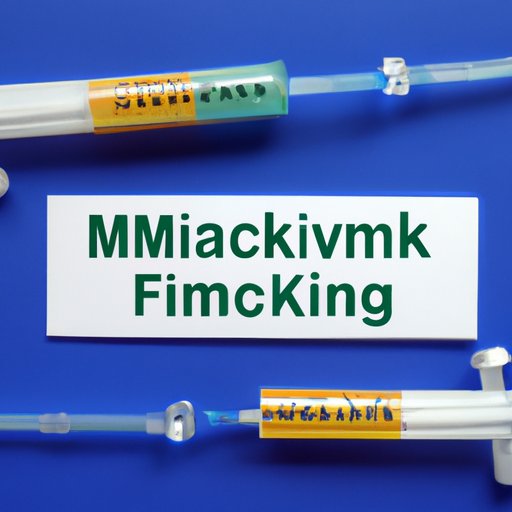
Introduction
Hand, Foot, and Mouth Disease (HFMD) is a viral illness that commonly affects young children but can also occur in adults. The condition is highly contagious and spreads through contact with infected bodily fluids or surfaces. In this article, we will discuss the preventive and treatment measures for HFMD, the symptoms, and possible causes of the disease, as well as debunk some common myths surrounding it.
Focus on Prevention Techniques
Practicing good hygiene is crucial in preventing the spread of HFMD. Always wash hands with soap and water often and teach children to do the same. Use separate towels and utensils and avoid sharing cups, utensils, and food. Cleaning and disinfecting surfaces in high-traffic areas like daycare centers, schools, and households can help stop the spread of the virus.
When someone is sick with HFMD, it is essential to practice precautions to minimize contagion. Use a face mask to avoid inhaling germs, wear gloves, and regularly clean the patient’s room and bath area. Quarantine the patient and ensure everyone who comes in contact with them washes their hands and avoids touching their mouth, nose, or eyes.
Causes and Symptoms of HFMD
The most common cause of HFMD is the Coxsackie virus group, with symptoms appearing approximately three to five days after infection. Symptoms may include fever, sore throat, painful blisters, and sores that develop on the hands, feet, and inside the mouth. While the symptoms of HFMD can be discomforting, in most cases, the illness resolves itself within seven to ten days.
Some common myths surrounding WFMD include that it can be caused by poor hygiene or only affects young children. Hygiene is certainly critical in minimizing contagion, but anyone can contract HFMD, including adults. Other misconceptions are that HFMD is the same as foot and mouth disease, which only affects animals and does not require medical attention.
Managing Symptoms of HFMD
While HFMD typically resolves on its own, some treatments can help alleviate symptoms. Oral pain medicines like ibuprofen or acetaminophen can reduce fever and relieve pain. Topical pain relief ointments can also be applied to sores in the mouth or on the skin. Drinking plenty of fluids, mostly water, is critical in preventing dehydration, and staying out of direct sunlight can ease fever symptoms. To avoid spreading the virus, it is wise to avoid public spaces until symptoms subside.
Support Strategies When Caring for Someone with HFMD
HFMD can be highly contagious, and those caring for someone with the virus should take extra precautions to halt contagion. This involves keeping the patient’s body fluids, clothing, and bedding clean, and avoiding close contact as far as possible. Healthy nutrition and hydration are also essential to keep the patient’s strength up. It may be helpful to offer emotional support, especially to young children, who may have difficulty coping with the discomfort and isolation from friends.
Recovery and Aftercare
Typically, the infection clears up within a week to ten days naturally. In some cases, the virus can cause complications such as viral meningitis or severe dehydration. In the case of complications, it is wise to seek immediate medical attention. Taking good hygiene measures, such as washing hands regularly to avoid contagion, remains crucial in preventing repeat infections. If fever symptoms persist even after all other symptoms have cleared, it may require further treatment and examination.
Conclusion
In conclusion, understanding and following preventive measures for HFMD is crucial in stopping its spread and contagion. While the illness can be uncomfortable for those affected, proper care to relieve symptoms can ease the discomfort. Recovery is generally within a week, but keeping up hygiene measures and seeking medical attention, when necessary, is crucial in avoiding complications and recurrence of infection.
If you have symptoms or suspect you or someone you care for has HFMD, it’s important to consult a medical professional immediately for appropriate treatment and advice.




